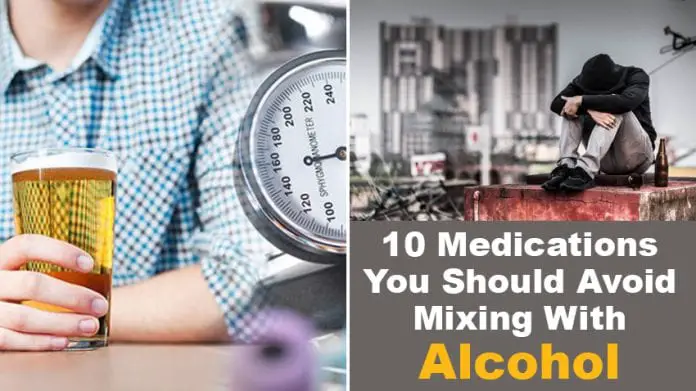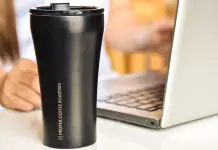Typically, we swallow our medication with a glass of plain water. But mixing medicine with alcohol such as beer, liquor, wine and cocktails is generally a bad idea. It can lead to numerous side effects and in some worst-case scenarios, a potential overdose. Which is why we have compiled a list of 10 Medications You Should Avoid Mixing With Alcohol, just to be on the safe side.
1) Antidepressants
Popping antidepressants with alcohol is best to avoid altogether. They are counterproductive and only makes your symptoms worse if you already suffer from depression in the first place. It can also lead to severe side effects such as dizziness, drowsiness as well as liver damage and impaired motor skills.

2) Mood Stabilisers
Like antidepressants, mood stabilisers do not go well with alcohol. Pairing them together may cause side effects like drowsiness, muscle/joint pain, nausea, impaired motor skills and irregular bowel syndrome.

3) Allergy Medications
Any allergy medications regardless of cold, flu or runny noses can pose a health risk if mixed with alcohol. This is especially true if the allergy medication can make you feel sleepy or groggy. Now, top that with alcohol in your bloodstream, and it will likely lead to dizziness and drowsiness. So, do take note if you regularly drive or operate heavy machinery.

4) Cough Syrups
Sure, some cough syrups that contain alcohol are generally safe for consumption as long as you are taking them as directed. But mixing a spoonful of cough syrup with a glass of beer or liquor triggers several negative reactions. This includes the likes of dizziness, drowsiness, nausea and even a higher chance of overdose.

5) Sleeping Pills
While taking prescription sleeping pills are generally discouraging, they do help sleep-related disorders such as anxiety, depression and short-term insomnia. But popping sleeping pills with alcohol is basically a recipe for disaster. Not only does it increase the sedating effects but it will also cause health issues like impaired motor skills, dizziness and shortness of breath. It can even lead to unusual behaviour and fatal overdose.

6) Diabetes Medications
Drinking alcohol while taking diabetes medication is never a good idea. In fact, doing so would lower your blood sugar levels and cause numerous side effects. This includes the likes of flushing, nausea & vomiting, drastic changes in blood pressure and rapid heartbeat.

7) High Cholesterol Medications
Prolonged alcohol consumption on a regular basis can lead to liver damage over time. Mix alcohol with high cholesterol medication and the risk of ruining your own liver increases even more. Other side effects that may occur if you mix high cholesterol medication with alcohol include flushing, itching and even stomach bleeding.

8) Arthritis Medications
The main purpose of taking arthritis medication is to minimise inflammation in the joints. This, of course, enables the sufferers to move around and perform their daily activities without worrying about the nagging pain. But if you choose to mix arthritis medication with alcohol, the result can lead to several side effects. Among them are stomach bleeding, liver damage and ulcers.

9) High Blood Pressure Medications
Suffering from high blood pressure is no laughing matter. It can cause several health complications, notably a heart attack. Whereas taking high blood pressure medication helps to alleviate the symptoms, mixing them with alcohol only make things worse. Side effects include dizziness, drowsiness, irregular heartbeat, flushing, itching as well as stomach bleeding and liver damage.
10) Antacids
If you suffer from heartburn, indigestion or acid reflux, antacids are one of the most common medications to neutralise acid in your stomach. They normally come in the form of over-the-counter chewable tablets, liquid or oral powder. While antacids are best taken with food or shortly after having a meal, pairing them with alcohol is a different story altogether. First of all, it can irritate your stomach. Other potential side effects include drastic changes in blood pressure, rapid heartbeat and liver damage.
















